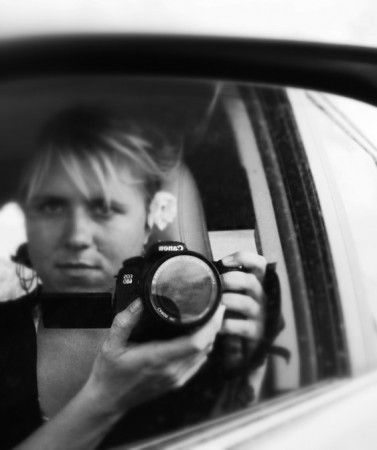About
Magister of Philosophy (Master’s equivalent), in Social and Cultural Anthropology, University of Vienna
Native Hawaiian charter schools – Schools without Walls: Indigenous Education in the formal Learning
Supervisor: Dr. John Barker, Dr. Candis Callison (Department of Journalism), Dr. Candace Kaleimamoowahinekapu Galla (Department of Language & Literacy Education)
Associations:
American Anthropology Association
Council on Anthropology and Education
Society for Visual Anthropology
Ethnographic Film Unit, UBC
MASN-Austria: Moving Anthropology Social Network
Research
Research Key Words:
Science, Technology & Society (STS) Studies; Education and Social Movements; Indigenous Epistemologies; Agricultural Biotechnology; Agroecology; Global Food Systems; Research Methods
Research:
My dissertation explores divergent meanings of aina (land) on the Hawaiian island of Kauai, an emergent global research centre for genetically engineered crops. Across three different settings – a Hawaiian-focused charter school, a wider social movement concerned with GMOs, and scientists in agricultural biotechnology – I investigated the different forms education takes on: as tools for indigenous self-determination, as U.S.-democratic and Hawaiian sovereign “right to know” what occurs to land and food, or as corrective for missed opportunities to convey to the public biotechnology’s benefits. These forms of education, I argue, emerge as distinct yet overlapping ‘learnscapes’ expressing diverse forms of expertise that both allow and prevent dialogue across a socio-culturally heterogeneous island population. The dissertation aims to contribute to larger debates on indigenous education, knowledge production, ‘public understanding of science’ (GMOs), and expertise, and how these processes and institutions co-evolve in the notion of education.
Publications
Visual Productions:
Gugganig, M. 2011. hidden practices, 7 minutes
October 2011 – Regard Bleu #7. Festival for Ethnographic Student and Film Media, University of Zurich/Switzerland
Mar 2012 – Ljubljana International Short Film Festival 2012
June 2012 – Contro-Sguardi International Anthropological Film Festival, Culture-Work-Multimedia, Perugia/Italy
Gugganig, M. 2011. Bread & Baker, 10 minutes
April 2011 – 5th Anthropology Film Festival, UBC (not competing for prize)
Gugganig, M. 2013. Kuʻu Home ma ka ʻĀina ʻĒ – A Home away from Home, 14 minutes
Publications:
Gugganig, M. (forthcoming) Review of Ancestral Places: Understanding Kanaka Geographies, by Katrina-Ann R. Kapanaokalokeola Nkoa Oliveira. Pacific Affairs.
Gugganig, M. (2015) The Ethics of Patenting and Genetically Engineering the Relative Hloa. Special Issue ‘Nature and Ethics’ Ethnos: Journal of Anthropology. doi: 10.1080/00141844.2015.1028564.
Gugganig, M. (2011) Hidden Practices: Demolished Houses and Anthropologists’ Tools. Theme Issue, “Renovation and Restoration,” Anthropology News 52(7).
Conference Presentations:
2014. Knowledge Production at the Fringes: Intersections between Education and Activism on the Island of Kuai. American Anthropology Association 112th Annual Meeting, Washington DC, December 4.
2014. The Right to Know GMO? Attempts at cleaning up a poisoned paradise. Workshop “On the Scale of Worlds”:Technoscience and Global Governance. STS Program/Harvard Kennedy School, October 10.
2014. The Diverse Landscape of Kauai: from Food Forest to Hee Fishing. International Society of Ethnobiology 14th Biannual Meeting, Bumthang/Bhutan, June 3.
2008 A lesson for the student called “anthropologist”. American Anthropology Association Annual Meeting, San Francisco
2008 The Ethnographer’s Advocacy: Working Together with Children and Youth. After Ethnography? Anthropology, Education and the Knowledge Economy, Oxford University
2009 Native Hawaiian Charter Schools – Schools without Walls: Indigenous
Education in the Formal Learning Institution. Talking Anthropology, MASN-Austria, Vienna
Awards
Wenner-Gren Visual Essay Award on ‘Hope and Insufficiencyhttps://hopeandinsufficiency.wordpress.com/visual-essay-competition/mascha-gugganig/May2015
Additional Description
Projects: Hawaii beyond the Wave, beyond the PostcardHawaii In this traveling art installation visitors are invited to reflect on issues of land use, food production, and agricultural biotechnology (in Hawaii) by writing their thoughts on postcards. The Postcards become part of the exhibition, and thus messengers on a global issue creating imperative lines of exchange. The exhibition has thus far been shown in the USA, Austria, Canada, and Bhutanhttps://hawaiibeyond.wordpress.com/November2013June2016CurrentSocio-Cultural AnthropologyLinkedInhttps://www.linkedin.com/pub/mascha-gugganig/90/b2b/83aPhD, Socio-Cultural Anthropology
